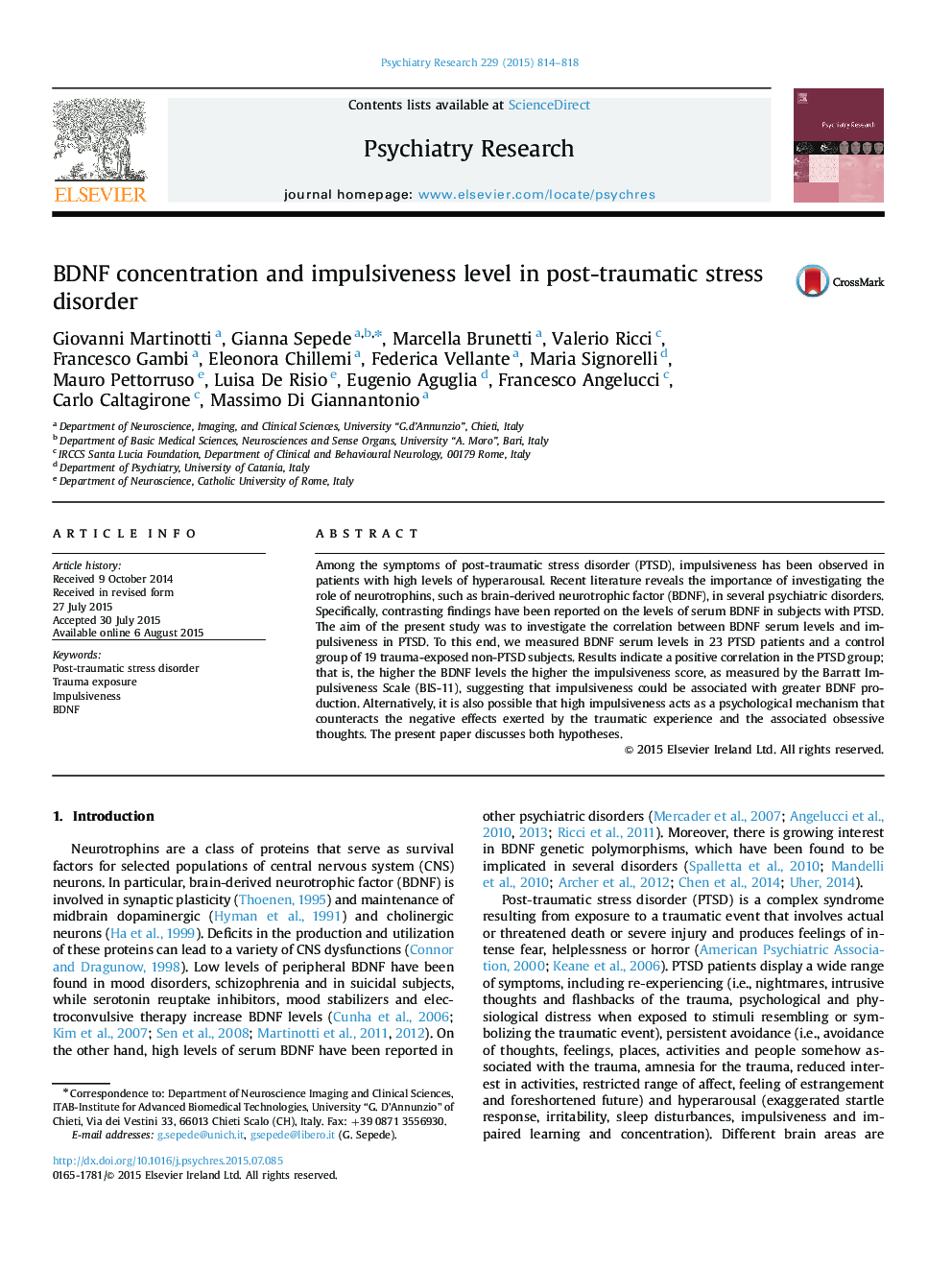| Article ID | Journal | Published Year | Pages | File Type |
|---|---|---|---|---|
| 333386 | Psychiatry Research | 2015 | 5 Pages |
•BDNF serum levels and impulsivity scores were measured in 23 PTSD patients and 19 trauma-exposed controls.•BDNF serum levels and impulsivity scores were positively correlated in PTSD patients only.•Higher impulsivity and lower PTSD levels were predictive of lower BDNF levels in the entire sample.
Among the symptoms of post-traumatic stress disorder (PTSD), impulsiveness has been observed in patients with high levels of hyperarousal. Recent literature reveals the importance of investigating the role of neurotrophins, such as brain-derived neurotrophic factor (BDNF), in several psychiatric disorders. Specifically, contrasting findings have been reported on the levels of serum BDNF in subjects with PTSD. The aim of the present study was to investigate the correlation between BDNF serum levels and impulsiveness in PTSD. To this end, we measured BDNF serum levels in 23 PTSD patients and a control group of 19 trauma-exposed non-PTSD subjects. Results indicate a positive correlation in the PTSD group; that is, the higher the BDNF levels the higher the impulsiveness score, as measured by the Barratt Impulsiveness Scale (BIS-11), suggesting that impulsiveness could be associated with greater BDNF production. Alternatively, it is also possible that high impulsiveness acts as a psychological mechanism that counteracts the negative effects exerted by the traumatic experience and the associated obsessive thoughts. The present paper discusses both hypotheses.
